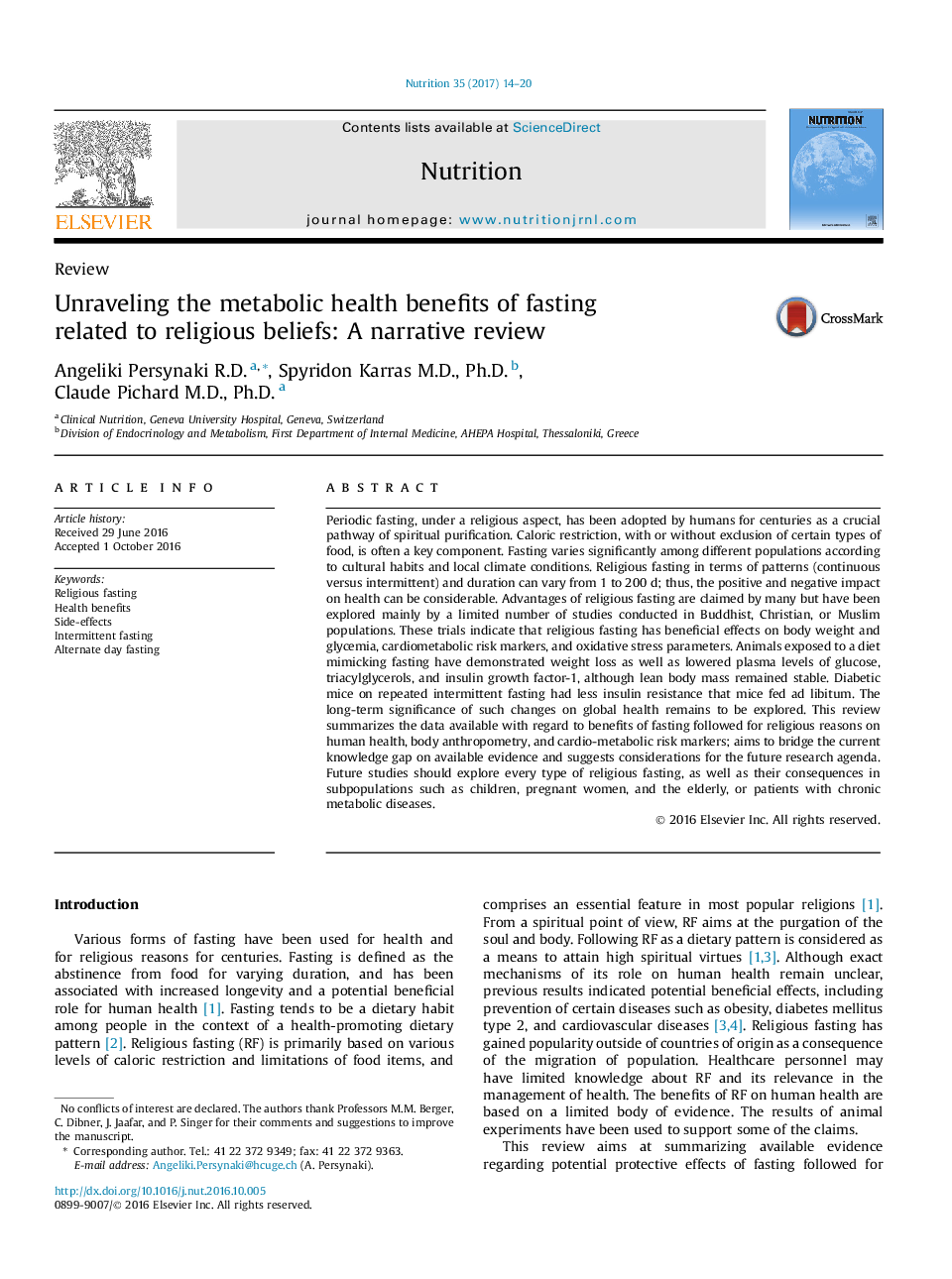| کد مقاله | کد نشریه | سال انتشار | مقاله انگلیسی | نسخه تمام متن |
|---|---|---|---|---|
| 5657000 | 1589662 | 2017 | 7 صفحه PDF | دانلود رایگان |
- Religious fasting reflects dietary habits of millions of believers.
- Health impact of religious fasting has been documented among Buddhists, Christians, and Muslims.
- Energy and/or food item restrictions are key components of religious fasting.
- Religious fasting has potential benefits on energy balance, dyslipidemia and oxidative stress.
- Religious fasting could be integrated into health management for diseases prevention.
Periodic fasting, under a religious aspect, has been adopted by humans for centuries as a crucial pathway of spiritual purification. Caloric restriction, with or without exclusion of certain types of food, is often a key component. Fasting varies significantly among different populations according to cultural habits and local climate conditions. Religious fasting in terms of patterns (continuous versus intermittent) and duration can vary from 1 to 200Â d; thus, the positive and negative impact on health can be considerable. Advantages of religious fasting are claimed by many but have been explored mainly by a limited number of studies conducted in Buddhist, Christian, or Muslim populations. These trials indicate that religious fasting has beneficial effects on body weight and glycemia, cardiometabolic risk markers, and oxidative stress parameters. Animals exposed to a diet mimicking fasting have demonstrated weight loss as well as lowered plasma levels of glucose, triacylglycerols, and insulin growth factor-1, although lean body mass remained stable. Diabetic mice on repeated intermittent fasting had less insulin resistance that mice fed ad libitum. The long-term significance of such changes on global health remains to be explored. This review summarizes the data available with regard to benefits of fasting followed for religious reasons on human health, body anthropometry, and cardio-metabolic risk markers; aims to bridge the current knowledge gap on available evidence and suggests considerations for the future research agenda. Future studies should explore every type of religious fasting, as well as their consequences in subpopulations such as children, pregnant women, and the elderly, or patients with chronic metabolic diseases.
Journal: Nutrition - Volume 35, March 2017, Pages 14-20
